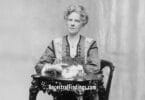Thanksgiving, deeply rooted in American culture, traces back to the early 17th century. Exploring its origins with the Plymouth colonists and the Wampanoag Native Americans. It also delves into the Christian perspectives of the early settlers, highlighting how these spiritual beliefs have shaped the holiday.
In 1621, after the Mayflower reached Plymouth Rock, the Plymouth colonists, seeking religious freedom, endured a brutal first winter. The spring brought encounters with Native Americans, including Squanto of the Pawtuxet tribe, who became a crucial mediator and teacher. The colonists’ Christian faith deeply influenced their interactions and gratitude. They viewed their survival and successful harvest as blessings from God, aligning with their religious doctrine that emphasized providence and thanksgiving to God in all circumstances.
The celebratory feast with the Wampanoag tribe symbolized not just a cultural exchange but also a manifestation of the Pilgrims’ spiritual thanksgiving. For these early settlers, who practiced a Puritan form of Christianity, such moments of gratitude and fellowship were seen as an opportunity to honor God, reflecting their belief in divine providence and grace.
Originally, the 1621 feast was not termed “Thanksgiving,” a concept both culturally and spiritually significant to the Pilgrims. Their Christian faith, which was central to their identity, ingrained in them the practice of giving thanks to God through prayer, a tradition that would evolve into the modern Thanksgiving holiday.
The transformation of Thanksgiving into a national holiday was further influenced by Christian beliefs over the centuries. The proclamation of Thanksgiving by Abraham Lincoln in 1863, amidst the Civil War, was not only a call for national gratitude but also for divine guidance and peace, deeply rooted in the Christian.
Today, while Thanksgiving is celebrated by people of diverse beliefs, its Christian origins remain a significant aspect of its history. Many Christian communities in America observe Thanksgiving as a time to express gratitude to God, aligning with the holiday’s historical roots. The day is often marked by church services, prayers, and reflection on the blessings of the year, in addition to the cultural traditions of family reunions and feasting.
However, it’s also a day of contemplation about the more complex aspects of American history, particularly the experiences of Native Americans post-European colonization. This duality invites a broader understanding and respect for the different narratives that make up the Thanksgiving story.
The evolution of Thanksgiving from a harvest feast in 1621 to a national holiday reflects a rich tapestry of cultural interactions, historical events, religious beliefs, and evolving traditions. The holiday serves as a reminder of the initial cooperation between Native Americans and European settlers, influenced by the Christian faith of the Pilgrims. As we continue to celebrate Thanksgiving, it is crucial to appreciate its multifaceted history, acknowledging its significance in shaping American culture, spirituality, and identity.
Here are some books available on Amazon that offer a comprehensive view of the history of Thanksgiving. Each of these books offers a unique perspective on Thanksgiving, from its historical roots to its modern-day observances, making them excellent resources for further reading on the topic.
“Thanksgiving: The Holiday at the Heart of the American Experience” by Melanie Kirkpatrick
This book explores Thanksgiving as a vital part of the American experience, providing insights into the holiday’s history and cultural significance.
“The First Thanksgiving: What the Real Story Tells Us About Loving God and Learning from History” by Robert Tracy McKenzie
This book offers a perspective on the first Thanksgiving, delving into its historical context and exploring its religious and spiritual significance.
“Thanksgiving: The Biography of an American Holiday” by James W. Baker and Peter J. Gomes
This comprehensive work provides an in-depth look at the history of Thanksgiving, tracing its evolution from its origins to its contemporary observance.
“This Land Is Their Land: The Wampanoag Indians, Plymouth Colony, and the Troubled History of Thanksgiving“ by David J. Silverman
This book presents a critical examination of Thanksgiving’s history, focusing on the experiences of the Wampanoag Indians and the impact of colonialism, offering a perspective that challenges traditional narratives.






